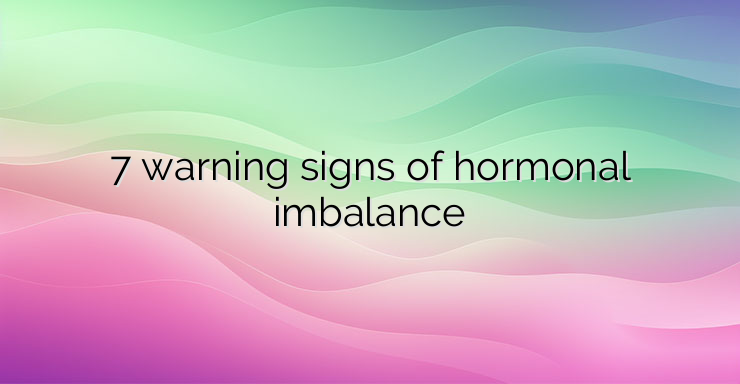Hormonal imbalances can be to blame for a number of unwanted symptoms, from fatigue or weight gain to itchy skin or a bad mood. Hormones are chemicals produced by glands in the endocrine system that are released into the blood. The imbalance occurs when there is an over- or under-production of certain hormones. They are extremely important in regulating many different processes in the body, including appetite and metabolism, sleep-wake cycles, reproductive cycles and sexual function, body temperature, and more. Not surprisingly, even the smallest imbalance can have a noticeable effect on overall health and well-being. Hormone levels naturally fluctuate throughout different stages of life, most notably during puberty and in women during the menstrual cycle, pregnancy and menopause. They can also be affected by lifestyle and certain medical conditions. It’s important to notice changes in your body early and get appropriate treatment, whether that involves using medication or complementary therapy, or making lifestyle changes to restore balance and your health. Mood changes The female sex hormone estrogen has an effect on neurotransmitters in the brain, including serotonin (a mood-enhancing chemical). Fluctuations in estrogen levels can cause premenstrual syndrome or depressed mood during perimenopause (the phase before menopause) and menopause. Heavy or painful periods If your period is accompanied by other symptoms, such as abdominal pain, frequent urination, lower back pain, constipation and painful intercourse, then you may have fibroids. Fibroids are non-cancerous growths that develop in the uterus. The exact cause is unknown, although it is thought that their stretch marks are stimulated by estrogen, but a family history can also increase the risk. Low Libido Low libido is especially common in women going through perimenopause or menopause due to declining estrogen and testosterone levels. Other symptoms of menopause, such as night sweats, fatigue, low mood and anxiety, can also affect your sex life. Insomnia and poor quality sleep During perimenopause and menopause, the ovaries gradually produce less estrogen and progesterone, which promotes sleep. Declining estrogen levels can also contribute to night sweats, which disrupt your sleep, contributing to fatigue and lack of energy. Unexplained weight gain A number of hormone-related conditions can cause weight gain, including an underactive thyroid (when the thyroid gland does not produce enough thyroid hormones that regulate metabolism), polycystic ovary syndrome, and menopause (which leads to fat storage mostly around the hips).Skin problems Chronic acne can be a sign of low levels of estrogen and progesterone and high levels of androgen hormones, and it can also indicate polycystic ovary syndrome. Similarly, hormonal imbalance during pregnancy or menopause can cause itchy skin, while dry skin is a symptom of menopause or thyroid problems. Fertility Problems Hormonal imbalance is one of the leading causes of female infertility and with changing hormone levels, a woman’s fertility naturally declines after the age of 35. High levels of follicle-stimulating hormone can reduce a woman’s chances of getting pregnant, while low levels of luteinizing hormone, which stimulates the release of an egg from the ovaries and the production of progesterone, can also cause fertility problems. Early menopause and other hormonal conditions also affect fertility. Source: hormonehealth.co.uk


Leave a Reply